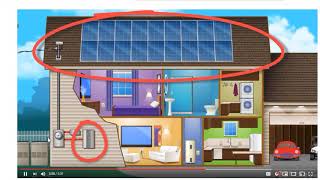
The first step in repairing or replacing your roof is choosing a contractor for shingle roofing. You need to consider warranty and shingle type, along with color. You should have a contractor who is familiar with all types of shingles in order to determine which one is right for you.
How to choose a shingle roofing contractor
There are many things to think about when selecting a shingle contractor. Consider a different color combination to your existing roof. Another option is to consider energy efficiency. While darker colors absorb heat, lighter colors reflect UV rays, helping to keep your home cooler during the summer.
The choice of shingle colors depends on your home's climate, as well as its texture. Some contractors may recommend a particular brand. A darker roof will reflect heat more efficiently in hot climates than one with a lighter color.

The choice of shingle material
There are several important factors to consider when choosing a shingle material for a new roof. First, you need to consider the color of the shingles, which should match the style of your home and the color of the surrounding environment. It is also important to consider the type of roofing material and its warranty.
The roof's shingle should be complementary to the siding. Certain colors work well with wood-colored houses such as browns, blacks, and gray-green. Pay attention to the colors of your neighbors as well as their landscaping.
How to choose a manufacturer’s warranty
Most shingle roof contractors provide a warranty against defects in workmanship, but this warranty does not cover all roof repair costs. Some warranties are prorated. This means that you will need to pay for repairs as and when they happen. A prorated warranty only covers defective materials, not labor costs.
GAF, Owens Corning and other manufacturers offer warranties on shingles. While these warranties are similar, it's important to choose a certified contractor, since warranties issued by companies not certified by the manufacturer will not be valid. It is also important to find a contractor that offers a workmanship guarantee.

Picking a Color
When choosing a shingle color for your new roof, there are several important factors to consider. First, make sure the shingle fits your home's architectural style. The second is to choose a color that highlights the unique features of your home. To get ideas for color schemes, you can look at Google images or real estate listings. You can also take a drive around your local area to see the existing color mixes.
The region where you live will affect the color of your shingle. A blue roof with a shingle roof would not look right in Florida, but coral shingles would work well in New England. You should also consider the color of sunlight as it varies throughout the day.
FAQ
When do I have the obligation to pay for the service/contractor
The service you are receiving will dictate the payment schedule. If you hire a contractor for a roof installation, payments would be made as soon as the work is completed. You might pay only after you receive and test the product if it is a product purchased from a supplier like a kitchen range cooker.
How much does it cost to apply for building permission?
It will vary depending on where you live and how complex your project is. It may also depend on whether you apply for permission to build or extend your current house. This can take several weeks so don't be surprised if you have to wait for everything to be completed.
What does my SCA include?
Your SCA will detail the scope of work, including the time it will take, how many materials are needed, what equipment is required, and whether special permits are necessary.
Is There Any Way That I Can Prepare For Negotiation Beforehand?
Yes!
There are many ways that you can prepare yourself for negotiation.
One way is to write out the terms and conditions of the agreement
Statistics
- While we offer all our high-quality services at competitive prices, we know that many who need our services are on fixed incomes, so we offer a 10 percent discount for seniors and military members. (homeservicecontractorsinc.com)
- (ii) Name, address, and telephone number of each proposed first-tier subcontractor with a proposed subcontract estimated at $10 million or more. (acquisition.gov)
- (3) The contracting officer may provide for a contract price adjustment based solely on a percentage rate determined by the contracting officer using a published economic indicator incorporated into the solicitation and resulting contract. (acquisition.gov)
- (v) Place or places of performance of the prime contract and first-tier subcontracts estimated at $10 million or more, if known. (acquisition.gov)
- Depending on the client's trustworthiness and financial stability, a deposit is usually 10 to 50% of the total contract amount. (lawdepot.com)
External Links
How To
What should a service contract include?
Every business relationship should have a Service Agreement (SA). It sets out what you expect from one another and how you intend to achieve these expectations. The SA also specifies when and where you expect each party to fulfill its contractual obligations.
A successful SA must include these key elements:
-
Both parties agree on the scope of work and the services they require.
-
Details about the payment terms.
-
A price agreed upon for the project.
-
Additional charges such as VAT and other fees may apply.
-
If there are any other issues that need to be addressed.
-
Who will be responsible if something goes wrong with the job?
-
How disputes are resolved
-
What happens when one party breaks the contract?
-
What happens in the event of a dispute.
-
When does the contract go into effect?
-
What happens when one of the parties doesn't perform?
-
How long do you have to pay invoices?
-
Who pays for things such as travel expenses?
-
Where the money comes from.
-
What happens when the client has a change of mind?
-
What happens if the supplier isn't there?
-
Who has permission to view the site during construction
-
What happens when the customer cancels a project?
-
What happens if the product is faulty.
-
What happens if a manufacturer refuses to provide parts?
-
What happens when the equipment stops working?
-
What happens if the project is delayed?
-
What happens if you don't complete the work within the set timeframe?
-
What happens to the project if it isn't up-to-standard?
-
What happens when the cost is too high?
-
What happens if the materials aren't delivered on time.
-
What happens if the material arrives broken?
-
What happens when the products don't meet standards?
-
What happens when the job is cancelled before completion?
-
What happens if the business goes under?